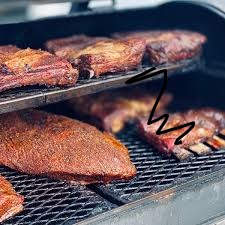Passion and professionalism come together in global barbecue competitions. In this case,
the flavors introduced by the pitmasters reflect their cultural and regional roots, such as Texas brisket with its smoky bark,
Carolina pulled pork with its vinegar sauces, or Memphis ribs with their dry rubs.
Every food narrates a story about a location and its culture, as well as demonstrates the ingenuity of the chef.
To most competitors, participating in an international competition is not only about winning a trophy; it is a
way to express their identity, meet fellow competitors all over the world, and challenge the limits of what
barbecue can become. International media and food critics usually report on these contests, which only
strengthens the image of the participants. Such a variety of flavors and methods makes sure that any
competition is treated as a learning process by all judges, competitors and spectators.
Tradition Meets Innovation

The balance between tradition and innovation is among the most interesting factors barbecue competitors
need to find. Numerous pitmasters are only sticking with the techniques that have been handed down over
the decades, with plain-spice blends, vintage smokers, and proven techniques. According to them authenticity
is in keeping the old ways and these have a direct link to the cultural heritage of barbecue. Meanwhile,
innovation has never been crowded out, and chefs experiment with fusion cuisines, using flavours of Asia,
South America, or the Mediterranean. This may include pouring soy-based glazes over ribs, rubbing brisket
with coffee, or mixing standard smoked meat with non-traditional sides. Being innovative means that no
barbecue competition will ever seem stale, and it will also push the judges and fans to broaden their conception of what barbecue can be.
The Part of Equipment and Technique.
Behind all great food there is a skill in tools and techniques. There are competitors who fiercely
believe in the old fashioned offset smokers and believe that wood-fired cooking and fire management
are the true elements of barbecue. Some people like contemporary pellet grills, precise and consistent,
so pitmasters can spend more time on seasoning and presentation. Control of airflow, smoke and cooking
time takes time and experience and a little slip up can spoil hours of preparation. That is why the choice of
the equipment is highly personal as it depends not only on the style but also on the philosophy of the competitor.
Agility in balancing tradition and technology is usually the difference between good and great outcomes, a reminder that barbecue is much more of a science than an art.
